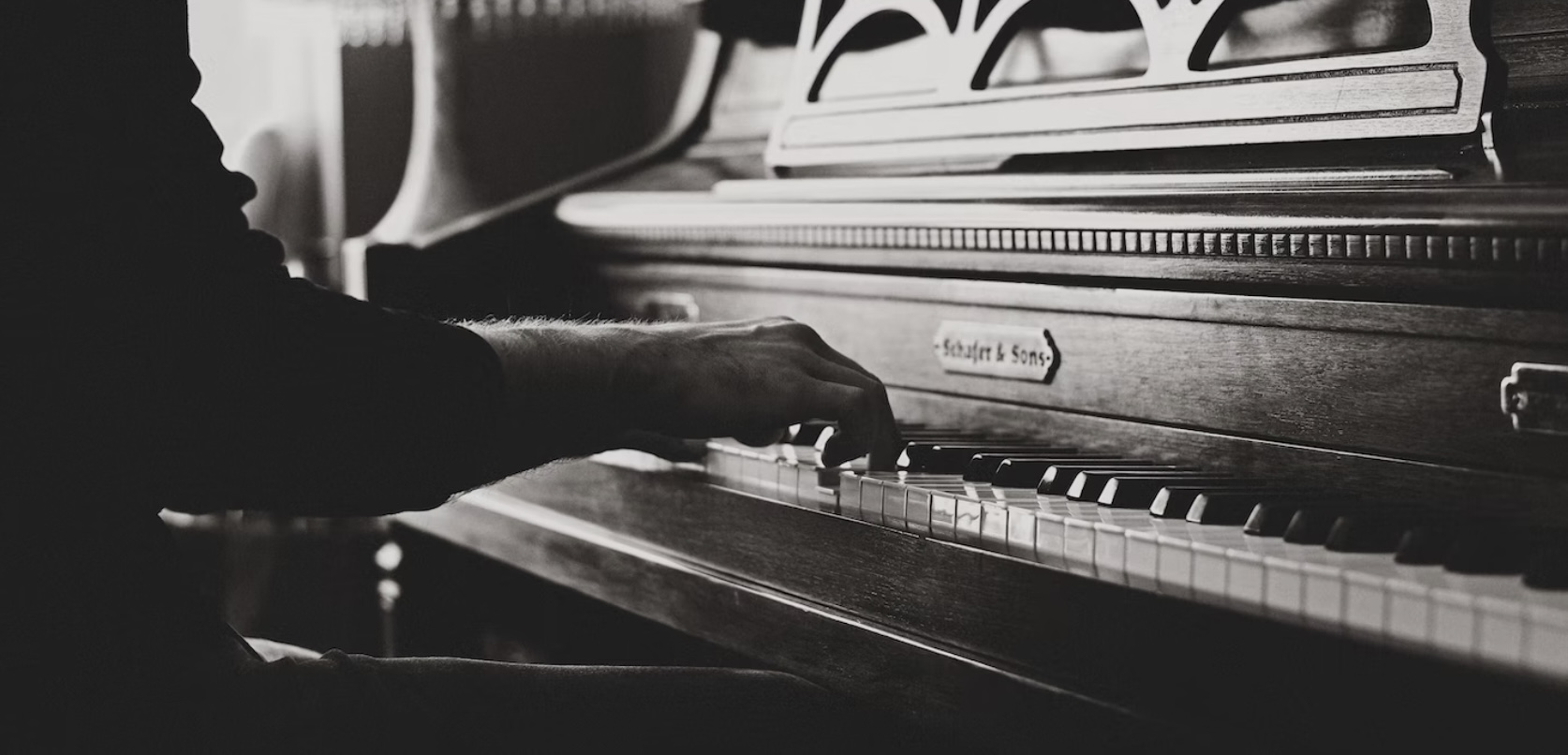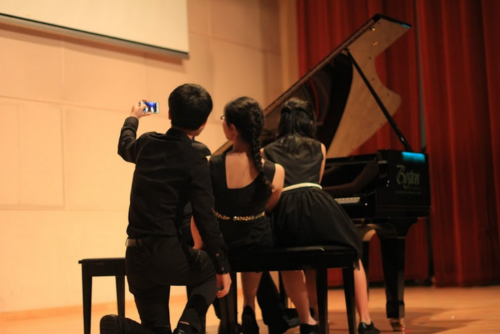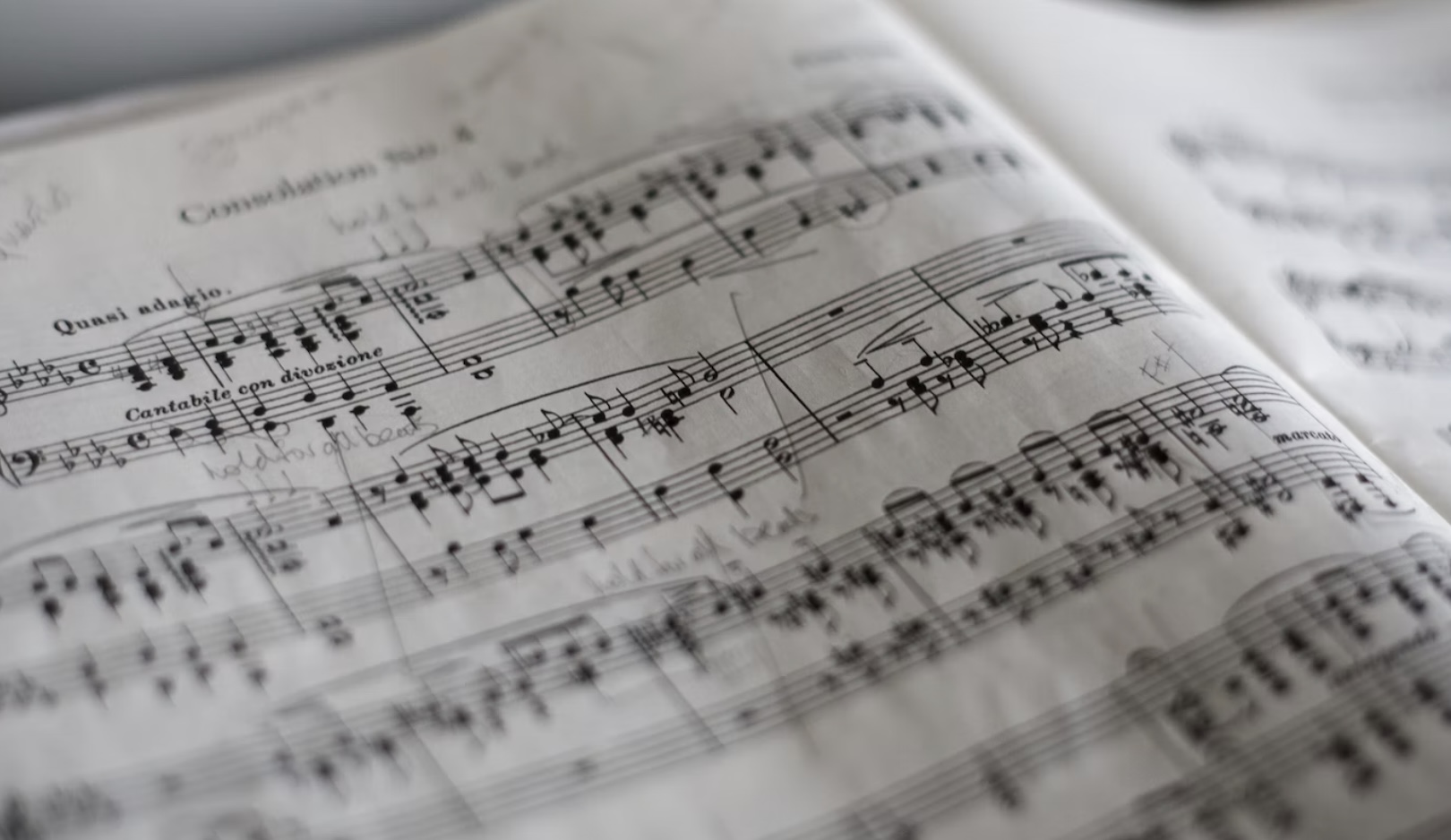In this guide, we’re exploring piano classes for kids in detail. We’re answering a lot of your questions about learning piano. We’ve got info on when your child should start, and whether they should have group piano classes or individual lessons. We’re also exploring the ideal approach to teaching piano.
If you are part of a school setup or other facility for young people, should you be using piano? We think piano classes and other music classes are an amazing way to encourage kids’ creativity. There are also so many studies showing that piano lessons can be great for childhood development.
So, let’s get into our guide, where we explore virtually every different aspect of piano classes and lessons for kids.
Age to Start Piano Lessons
Just a very quick word on the best age to start piano lessons. You can view our full guide to this here but there are some simple questions to ask yourself before deciding if your child is ready to start lessons.
- Can they count to five?
- Does your child understand the alphabet?
- Are they able to concentrate for 20 minutes or more on something that doesn’t involve a screen?
- Is your child able to follow simple instructions?
- Are they interested in piano? There’s not much point in starting unless they actually want to.
While there are always exceptions to the rules, most kids are ready at around ages six to nine. This varies depending on each child, of course. You shouldn’t push your child to take piano lessons or enrol in piano classes as there’s a chance you will ruin it for them. Wait until they show an interest on their own.
Why So Many Kids Take Piano Classes
This is a subject we’ve covered in detail many times on the Pianu blog. The benefits of taking piano lessons are clear to see for virtually everyone.
The reasons that so many kids take piano classes include the fact that it is so good for cognitive development. ArtsEdSearch shared the results of a study showing that “Students given weekly piano lessons scored higher on general cognitive and spatial testing than their peers in the control group after years one and two of the study. General cognitive skills are necessary for learning and include attention, memory, logic and reasoning.”
Piano can complement so many other aspects of learning. The fact that it uses skills such as language, the alphabet, and math, means that it is a perfect activity for kids.
One of the reasons that piano lessons are so popular among parents and teachers is that it can teach discipline. It is important for children to understand that to learn they need to be disciplined. Piano can also teach resilience in the same way. It is frustrating when you are struggling to get something right, but it is worth persevering with. This is one of life’s vital lessons, and parents and teachers love to embed this from an early age.
Piano is also pretty unique in the fact that it enables kids to do something creative while they are learning these functional skills. Not only are kids learning things like math, they are also practicing their creativity and even using this as an outlet.
Online, In Person, or Remote Piano Lessons
The options for learning piano are better than ever. We can all approach piano lessons in a way that suits us. So, which are the best ways for kids to learn piano, should piano classes always be in person?
Online Piano Lessons
Using a service like Pianu means you have a set of online piano lessons ready to go whenever you are. Connect your MIDI-enabled keyboard and get a real interactive piano lesson right there in your browser.
Online piano lessons offer an amazing level of convenience. This means that you can log in and learn to play a song you want, or try out one of the piano lessons, without having to worry about whether your teacher is free. It can be done on-the-go, so kids don’t have to be at school. The fact that the virtual piano can be used also means kids don’t have to have a real piano in front of them to learn. You can also get feedback, Pianu clearly tells you what you’re doing right and wrong.
Even if you are taking classes and enjoying different lessons, it is a good idea to supplement it with online lessons. This is a way to learn new songs, and to give solo practice a little bit more structure.
In-Person Piano Classes
In-person piano classes are great. You can get real-time feedback and ask specific questions to a tutor or teacher. This can be a good way to understand the basics and if you have an engaging teacher it can make learning easier (side note, not all piano teachers are engaging).
Many schools offer music lessons that include in-person piano classes. These can be undertaken during school hours. It makes perfect sense for a school to offer this.
According to an amazing statistic by Children’s Music Workshop: “Schools with music programs have an estimated 90.2% graduation rate and 93.9% attendance rate compared to schools without music education, which average 72.9% graduation and 84.9% attendance.”
In-person piano classes can be an amazing way to keep kids engaged and help their brains develop. However, supplementing this with online lessons is a fantastic option, too. Certain kids who show a lot of interest in music will want to soak up all of the information they can.
Remote Piano Classes
A lot of us have got very used to remote learning in recent years.
One of the best things about remote piano classes is that you can be virtually anywhere in the world. Your teacher can also be anywhere. However, there are some downsides. It can be harder to engage, and there are likely to be a lot more distractions. It takes a certain kind of kid to engage with a 30 minute remote piano class when their toys are in the same room. It’s possible that they might not find it as easy as going to a specific space to engage.
Also, the setup can be a little tricky. You need to set up your camera in a way that the teacher can see (and hear) what you are doing. You also need to ensure that you can easily follow along with their playing.
Remote classes, like all methods of learning, come with pros and cons.
Piano Classes in Schools
Piano classes in schools can be one of the best ways for parents to offer lessons to their kids. On top of this, you can offer kids a wholesome, constructive, yet fun activity to get involved with.
If you’re involved with a school, there is really no reason not to offer some sort of piano lessons to your children. Even if you don’t have a piano teacher come in to run piano classes, you can offer lessons via an online platform. Pianu’s Academy has proven to be an amazing way for children to get started. It provides them with real-time feedback, too, so they can see what they are doing right or wrong.
Reach out to us today if you are from an educational establishment looking to offer piano lessons using the Pianu platform. We can help you to provide children with an affordable and interactive way to learn piano, and access to a huge library of song tutorials.
Classes during school hours are more than worth including in a curriculum. Some teachers and headteachers may assume that piano and music lessons are just for fun. Some don’t have a positive view of the arts. But the evidence is there and black and white, piano lessons help with other forms of learning.
Also, schools may offer after-school lessons that are optional for kids. Their parents may need to pay for them to attend these lessons, but having the choice is almost always a good thing.
Group Classes or One-to-One Lessons?
So what is best for kids who are going to attend piano classes? There is every chance that you will be put into a group class, but this may not be the best choice.
It is worth understanding the differences between the two. As a parent, it can also be a part of your decision on whether you fund private, one-to-one lessons for your child.
Group Piano Classes
This is when a large class of people are put into a room, usually with one teacher. The piano teacher will show them how to do something, and demonstrate the technique on the piano. They then usually need to repeat it.
As well as practical demonstrations, there are a lot of lessons that will cover things like music theory and learning how to read music. Learning in a group is something that kids are used to, it is how the majority of us experience school.
Group piano classes come with a major downside. When you have a group of people in a lesson, they all want help from just one teacher. There’s no way that one person can give everyone a lot of attention and feedback.
On top of this, some of the group lessons can easily be ruined. We all know what it is like when there is a particularly disruptive student taking part. You might find this ruins your lesson. As a child learning piano, you will probably be attending the class because you’re interested and want to learn. However, if you are thrown in with someone who doesn’t want to learn it can ruin the experience.
One-to-One
Learning in a one-to-one environment is almost always more effective. For one thing, you will have the teacher’s full attention. They can point out where you are going wrong.
A good teacher is also able to provide a specific set of lessons that can be tailored to you and what you are interested in. At Pianu, we believe in piano being fun. A lot of us remember what it was like having piano lessons as a kid. A tutor would turn up and show you the same few songs, no matter what you were interested in.
Having a set of songs to learn from is amazing, but there are ways to make it more interesting for you. That’s why at Pianu, we have a set of lessons and a huge library of songs you can learn.
During a one-to-one lesson, students can ask questions, and ask to focus on specific techniques. It is also great for those who want to eventually reach a high level of playing. You can learn the ins and outs of virtually every different piano technique if you have the right teacher.
Learning one-to-one can also be expensive. Parents can’t all afford to pay for their kids to have private lessons. If you are learning alone there is nobody to split the tuition cost with and your tutor might not be cheap. They need to make a living too. One of the solutions is using an online learning method like Pianu. We can give you a one-to-one experience and tailored feedback without the need for a human to visit your house, plus you can learn at your own pace.
How to Offer Piano Classes For Kids
If you are from an educational establishment and you have decided you want to offer piano classes, then you should consider the easiest ways to do this.
Hire a music teacher. You may already have a music teacher on the payroll at your school, but they aren’t always comfortable with piano. If you have the budget and you think it is a good use of resources, you should definitely consider offering piano classes by hiring a new teacher.
We understand that a lot of schools don’t have the resources for this. So, they can bring in an external tutor to help. You can look for piano teachers in the local area and consider whether they may be willing to come and teach a class. Make sure you have performed the relevant background checks to keep kids safe at all times.
Offer kids a digital solution. Children are much more comfortable using technology than they ever have been. A lot of kids embrace the chance to learn on their own time, using their own device. Schools can provide this with a membership to Pianu, which is an amazing way for kids to learn how to play. Some of the lessons within Pianu seek to “gamify” piano, keeping it fun for kids of all ages.
Piano Classes For Kids – Keeping it Interesting
Kids piano classes are a fantastic way for them to learn, if they are engaged. That is a big “if”. If a kid loses interest then there is no chance that any knowledge is going in.
Here are some top tips for keeping piano lessons interesting for children of all ages:
- Don’t pack too much into a short period of time. Kids don’t have long attention spans, and it is easy for them to get bored. Bite-sized lessons with real valuable information can give you the best way forward.
- Build up a rapport with kids. If you are teaching them how to play piano then having a relationship with them can also help with engagement.
- Don’t use complex language. Even though there are some terms in piano that will seem complicated, try to put them in a straightforward and simple way.
- Talk to the kids. It sounds simple, but one of the best ways to keep it effective is chatting to the children about what they enjoy and find most engaging. Try to tailor the lessons to their needs.
There are a variety of different fun games that you can incorporate into music lessons. This is a good way to keep it fun and “gamify” the learning. It helps kids to engage and learn even if they think they are just having fun with the piano.
Do Kids Need to Learn to Read Music?
We’ve debated this on other posts on our Pianu blog, but it is certainly relevant here. Do kids need to learn how to read music?
Reading music was originally crucial for learning how to play piano. Sheet music was how we communicated melodies, timings, and all aspects of music before we had technology. Piano classes for kids and adults alike would have to start with this fundamental knowledge.
In the modern day and age, there are a lot of ways that kids can learn how to play piano without being able to read music. It is great if eventually they can bolt on this knowledge, but it is possible that trying to teach some kids to read music can put them off. A lot of children would rather dive straight in and start playing.
With Pianu, you can take the approach that works best for you. The sheet music is there, but it also gives a visual way to learn the piano so that you don’t have to worry about learning what feels like another language entirely.
As kids can listen to music and the way it is structured, what it sounds like, etc. they don’t have to worry too much about what the symbols and notation mean. There are a lot of modern musicians who can play piano to a decent standard but actually can’t read music. This isn’t just true for piano, actually, a lot of famous musicians can’t. It’s common among guitarists, but there are plenty of pianists who can’t read music either.
More Learning Resources For Kids
Piano classes for kids can be one of the best ways for them to learn, but they need more resources to keep them interested, and to stay engaged in between lessons.
- YouTube. This provides access to a huge number of tutorials and interesting piano videos. Millions of kids watch YouTube every single day, so the option to use this for learning can be a huge plus point. Get your kid to subscribe to a few channels providing free lessons, including Pianu’s channel, or Become a Piano Superhuman.
- Pianu. As well as our academy, we have a huge number of piano lessons in our song library, so you can start to play songs from nursery rhymes, to rock songs, to classical.
- Piano books. You can still make use of piano books, even in this day and age! There are plenty of great books out there, which are especially good if you are looking to learn more about the theory side of things. Specific piano books for kids include the Hal Leonard Method series.
- For teachers, check out My Fun Piano Studio for a collection of teaching tips and lessons you can use with kids. There is a lot of free information out there that can help with piano lessons.
Summary – All Kids Should Have The Chance to Learn
We believe that every kid who shows an interest in piano should have the chance to learn. Facilitating piano lessons for kids is one of the best things schools and educational organizations can do.
On top of this, children can engage with online learning methods such as Pianu, allowing them to go through a structured course in their own time, and receive feedback on their playing.
In the modern age, it is easier than ever for kids to get started. Gone are the days of needing an acoustic piano that needs to be tuned every six months. Now, a MIDI keyboard with a laptop or a tablet can be enough to start the learning process, and along with a Pianu membership, the cost is manageable for families.
Piano classes for kids, either as a group or on their own, have so many educational benefits that it is hard to argue against them, and with simple ways to start playing available to anyone, of any age, the time to get started is now. Check out our membership options if you’re ready to take your first steps with the Pianu academy.












